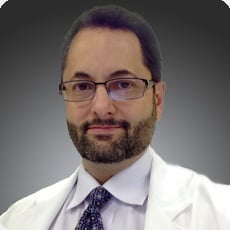‘We Have a Vaccine That Can Prevent Cancer'
So Why Aren’t More Parents Getting the Message?
 Every year in the United States, about 31,000 women and men are diagnosed with a cancer caused by HPV infection. According to the CDC, HPV vaccination can prevent most of the cancers (about 28,000) from occurring.
Every year in the United States, about 31,000 women and men are diagnosed with a cancer caused by HPV infection. According to the CDC, HPV vaccination can prevent most of the cancers (about 28,000) from occurring.
So why aren’t more people getting this vaccine?
According to NPR, a new analysis from the Blue Cross Blue Shield Association found only 29 percent of the teens its members insure receive a first dose of the human papillomavirus (HPV) vaccine by their 13th birthday. The CDC found that nationally only 43 percent of teens are up-to-date on all the recommended doses of the vaccine.
Another recent study found that Texas ranks 47th in the cancer-preventing vaccine. Out of the 50 states and the District of Columbia, Texas only ranked higher than Utah, South Carolina, Wyoming and Mississippi for HPV vaccination coverage.
“A simple vaccination can mean the difference between getting a deadly cancer or not. Unfortunately, not enough people are getting the importance of this message,” said Jason V. Terk, a Cook Children’s pediatrician.
HPV infection can cause cervical, vaginal and vulvar cancers in women and penile cancer in men. HPV can also cause anal cancer, throat cancer and genital warts in both men and women.
 The HPV vaccine is recommended for preteen boys and girls at age 11 or 12 so they are protected before ever being exposed to the virus. The CDC recommends that 11 to 12 year olds receive two doses of HPV vaccine at least six months apart.
The HPV vaccine is recommended for preteen boys and girls at age 11 or 12 so they are protected before ever being exposed to the virus. The CDC recommends that 11 to 12 year olds receive two doses of HPV vaccine at least six months apart.
Teens and younger adults who start the series later, at ages 15 through 26 years, will need three doses of HPV vaccine to protect against cancer-causing HPV infection.
The Texas System Offices of Health Affairs states that about 90 percent of men and 85 percent of women in the United States will contract HPV at some point in their lives. HPV is the most common sexually transmitted virus in the United States. Most sexually active people will have genital HPV at some time in their lives.
By the year 2020, experts believe head and neck cancer will surpass cervical cancer as the most common cancer caused by HPV.
Across the country, the number of children who receive the HPV vaccine is very low compared to other vaccines they are scheduled to receive at the same time. This is despite the fact that meningitis and pertussis are much less common than HPV.
Dr. Terk wonders if there’s a disconnect when parents think about their child receiving the HPV vaccination.
“One of the major problems with HPV is that it may be 20 or 30 years before a person develops cancer due to an infection that happens in the teen years,” Dr. Terk said. “Waiting until you think HPV is a risk is too late. We have to make every effort to provide our patients the HPV vaccine so we can put an end to the thousands of teens who move through Cook Children’s without ever gaining this indispensable protection.”
That’s what Dr. Terk wants parents to know: HPV infection can be prevented.
The vaccine is most effective when given in early adolescence.
The FDA has approved vaccines that prevent the HPV strains that are associated with cancers of the cervix and head and neck.
"This is a relevant issue for all parents,” Dr. Terk said. “We have a vaccine that can prevent cancer. Parents should start the vaccination process as soon as their pediatrician recommends.”
Get to know Jason Terk, M.D.
 Dr. Terk is a Cook Children's pediatrician at Keller Parkway. Dr. Terk earned his medical degree from University of Texas Medical Branch in Galveston, Texas. He completed his residency in pediatrics at Mayo Graduate School of Medicine (Mayo Clinic) in Rochester, Minnesota. His interests include public policy advocacy for children's health issues, focusing primarily on vaccines. Dr. Terk is board-certified in pediatrics. New and exisiting Cook Children's Keller pediatrician office patients can make an appointment by calling 817-968-1200 or through the button below to access Cook Children's Patient Portal.
Dr. Terk is a Cook Children's pediatrician at Keller Parkway. Dr. Terk earned his medical degree from University of Texas Medical Branch in Galveston, Texas. He completed his residency in pediatrics at Mayo Graduate School of Medicine (Mayo Clinic) in Rochester, Minnesota. His interests include public policy advocacy for children's health issues, focusing primarily on vaccines. Dr. Terk is board-certified in pediatrics. New and exisiting Cook Children's Keller pediatrician office patients can make an appointment by calling 817-968-1200 or through the button below to access Cook Children's Patient Portal.
